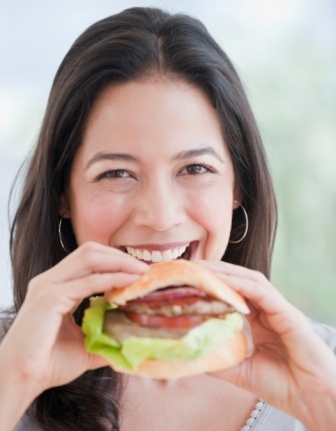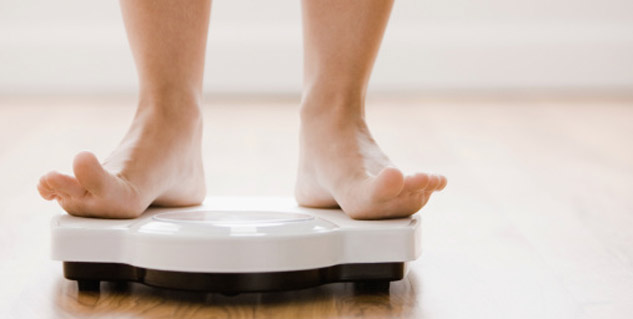Emotional Eating: A Prime Ingredient for Obesity
Emotional eating for both women and men has been an issue of greater attention in the recent years. In fact, some experts have gone so far as to claim that most weight gain can be blamed on emotional eating.
According to Women Today magazine, it has been estimated that as much as 75 percent of overeating is attributed to the emotions.

Causes Of Emotional Eating
Anxiety
For a number of people, overeating stems from anxiety. For instance, if you find yourself consuming an entire bag of potato chips, it’s possible that anxiety is the cause.
Depression
In other cases of emotional eating, overeating may be the result of depression. If you feel tired, hopeless, and have lost interest in your normal activities, you may be suffering from a depressive episode.
Consequences of Emotional Eating
In order to deal with these uncomfortable feelings, people may turn to emotional eating. The problem is that the emotional eating can lead to weight gain, which can lead to further depression.
At times, overeating may be a symptom of boredom. An individual may figure that he or she has nothing better to do than overeat. This can be particularly true when one is watching television or surfing the Internet.
Rather than trying to determine a cause for the boredom, an individual may just try to “fix” it by indulging in emotional eating (high-fat, high-calorie food).
Are you an Emotional Eater?
How do you know if you are an emotional eater? Ask yourself some key questions: Do I tend to eat when I’m worried? Scared? Sad? Do I find that eating lifts my spirits? Am I spending more time eating than engaging in other activities I enjoy?
Do my binges come after I’ve suffered disappointment? Am I turning to food in order to deal with the death of a loved one…a divorce…or the defeat of my favorite team? If the answers to any of these questions is “yes,” you may be overeating purely for emotional reasons.
After you’ve identified yourself as an emotional eating person, you’ll need to take steps to correct your behavior.
Techniques to avoid Emotional Eating:
Diversion
Perhaps the most effective technique to avoid emotional eating is diversion. In other words, if you find yourself reaching for the cookie jar, find another activity to engage in. The answer could be taking a walk, kickboxing, or dancing.
The idea is to get your hands…and perhaps the rest of your body…moving. In time, you might find the urge to overeat subsides as you become involved with other activities.
Identify the triggers for your emotional eating
Another effective step you can take is to identify the triggers for your emotional eating. Do you tend to binge in mid-morning, mid-afternoon, or right before bedtime? Are you snacking while watching television, while at the computer, or when you’re sitting in your favorite chair?
By asking yourself these questions, you can identify the time of day when you overeat, as well as the location for your binging. With this information, you can learn to re-direct your behavior to less fattening pursuits.
Support Network
Yet another helpful technique to avoid emotional eating is to develop a support network to help you combat overeating. The members of your support team could include your spouse, children, parents, friends, or other emotional eating persons.
You may even consider joining a support group, which specializes in helping those who engage in binge eating.
If you feel the need to overeat, contact a member of your emotional eating support team. Talking through your emotions could provide you with the emotional release you need, making overeating unnecessary.
-
Understanding And Combatting Anorexia
What Is Anorexia?Anorexia is the decreased sense of appetite. It is f
-
Why Youre Gaining Weight Despite Your Herculean Efforts To Lose It
-
Improvement of memory through weight loss
-
The Best Way To Remain Healthy And Balanced With Dieting
By implementing Superfoods into your daily diet will help you to a lot
-
Fat Blaster series (1)
Do you skate occasionally? Do you skate often? According to authori
-
3 Simple Ways To Get Rid Of Cellulite
Do you have cellulite? Do you want to get rid of it? Cellulite is a ve
- DON'T MISS
- Weight Loss Pills Are Not The Secret To Fat Loss
- Tricks To Assist Stick To A Healthy Weight Loss Plan
- Laws For Abdominal Training Module
- Diabetes Diet: The Low Glycemic Index Diet is Much More Than Just a Fad Diet
- Fat Burning Food The Search For The Holy Grail
- Quick Weight Loss Diet: How To Lose Those Extra Pounds Easily
- Human Body Adaptation To Overeating
- Under the Knife
- Diet - Change Old Bad Habits, Don't Start New Ones
- Healthy Eating On The Go




